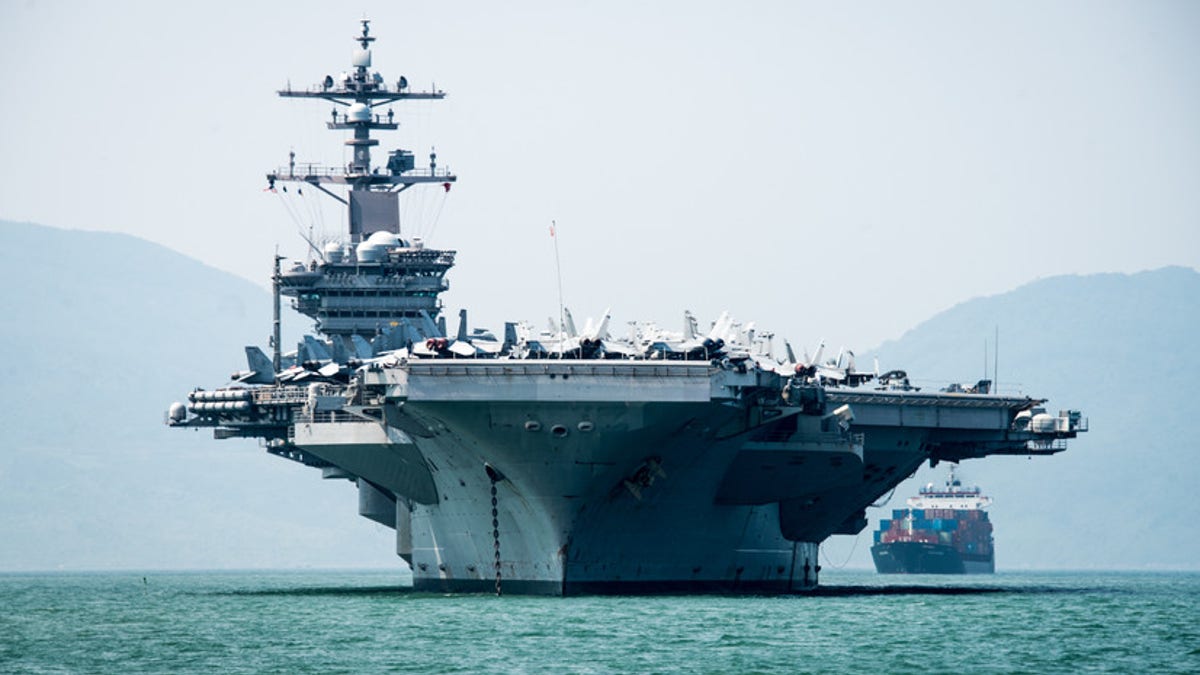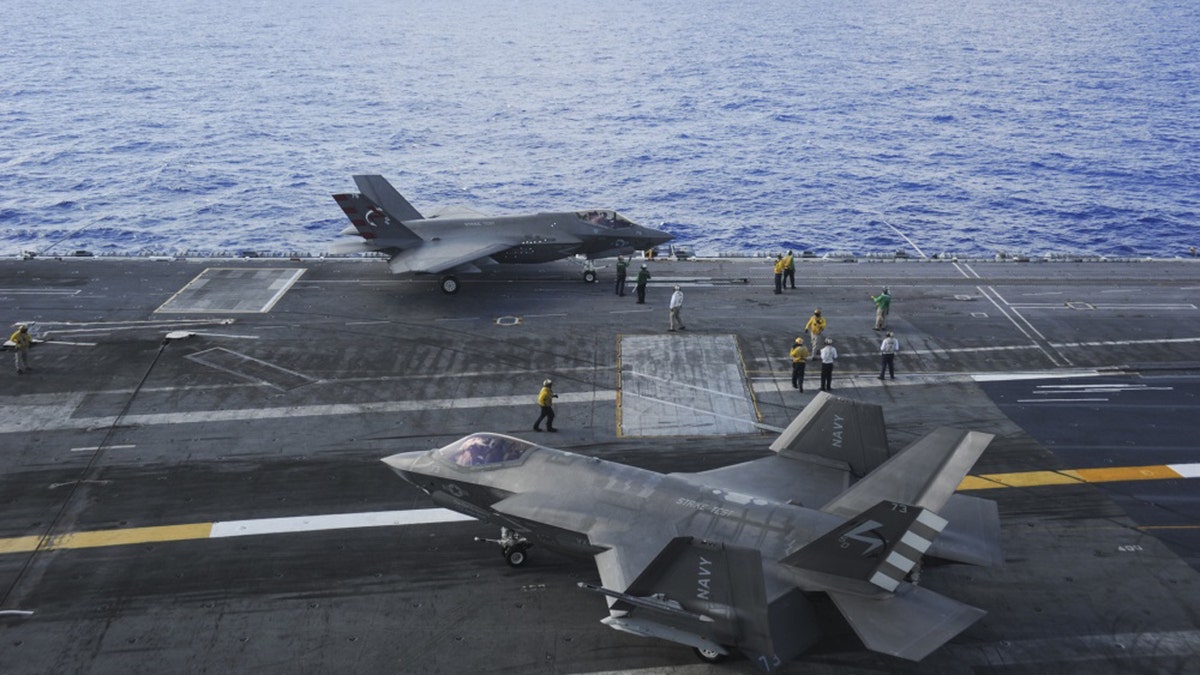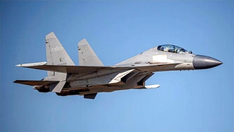China has covered up COVID for almost 2.5 years: Morgan Ortagus
'Special Report' All-Star Panel analyzes the coronavirus lab leak theory.
Something is wrong in the South China Sea.
The U.S. Navy reported yet another incident Monday involving a high-tech aircraft that is now missing somewhere in the depths of the South China Sea. The military is now launching efforts to reclaim the valuable warplane, and experts are wondering how the same carrier has had five accidents in just a few months.
"An F-35C Lightning II, assigned to Carrier Air Wing (CVW) 2, had a landing mishap on deck while USS Carl Vinson (CVN 70) was conducting routine flight operations in the South China Sea, Jan. 24," the Navy said in its shot memo on the mishap.
It began as a routine landing on the deck of the USS Carl Vinson – a U.S. aircraft carrier stationed in the waters off the coast of East Asia. But the F-35C came in wonky, impacting into the surface of the ship as the pilot ejected from the plane.
The crash injured seven crewmen, including the pilot.

The Nimitz-class aircraft carrier USS Carl Vinson (CVN 70) arrives in Da Nang, Vietnam, for a scheduled port visit on March 5, 2018. The Carl Vinson Strike Group is in the Western Pacific as part of a regularly scheduled deployment. (U.S. Navy photo by Mass Communication Specialist 3rd Class Devin M. Monroe/Released)
"The pilot safely ejected from the aircraft and was recovered via U.S. military helicopter. The pilot is in stable condition," the Navy said. "There were seven total Sailors injured; three Sailors required MEDEVAC to a medical treatment facility in Manila, Philippines, and four were treated by on-board medical personnel."
The Navy reported that there were no fatalities from the crash, and that all three injured personnel were treated promptly.
"All three MEDEVACs are assessed as stable. Of the four Sailors treated by on-board medical, three have been released. Additional details and the cause of the inflight mishap is under investigation."
"All five incidents remain under investigation, and we cannot speak to any pattern until the investigation concludes," a Navy spokesperson told Military.com.
This marks the fifth mishap for the same aircraft carrier in just three months. The four emergencies since November include an in-flight engine fire aboard a Super Hornet warplane and a similar engine fire on a CMV-22B while it was on the ship's deck. A Seahawk helicopter lost its sonar capabilities during a training drill.

F-35C Lightning II carrier variants, assigned to the Salty Dogs of Air Test and Evaluation Squadron (VX) 23, taxi on the flight deck of the aircraft carrier USS George Washington (CVN 73) in the Atlantic Ocean on Aug. 14, 2016. VX-23 is conducting its third and final developmental test (DT-III) phase aboard George Washington in the Atlantic Ocean - file photo. (U.S. Navy photo by Mass Communication Specialist 3rd Class Alora R. Blosch)
CLICK HERE TO GET THE FOX NEWS APP
China launched 39 aircraft, mostly fighter jets, near Taiwan Sunday — the largest show of force in months.
The launch came the same day the U.S. Navy sailed two aircraft carriers along with a pair of amphibious assault ships alongside allies in the Philippine Sea.
It's not clear what might have prompted the escalation, but China did something similar in early October during similar U.S. Navy operations.
Taiwan issued radio warnings and sent combat air patrol to deter the Chinese aircraft, while air defense missile systems were deployed to monitor them, Taiwan’s Ministry of National Defense said in the statement issued late on Sunday.








































